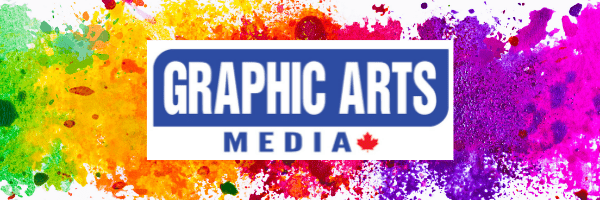First, a good writer must break through to the reader on an emotional level, and second, genuinely care about a client’s success. These are arguably the two most important things that I’ve learned in my 45 years as a writer.
1. Appeal to the reader’s emotions
Most writing will fail, or at best be very forgettable, if this doesn’t happen. Break through that barrier of indifference. And don’t be afraid to zero-in on financial benefits. Making (or saving) extra money can be pretty emotional, especially in this lousy economy. If you’re not excited about your topic, don’t expect your readers to be.
2. Brand yourself
Large companies spend millions of dollars to achieve “top-of-mind recognition.” For example, when you think of colas, “Coke” and “Pepsi” rule. You don’t have that kind of money, so do the next best thing: Always have a positioning statement (tagline) below your logo. This is a short statement that summarizes what your company’s all about. It should answer the key question: “How do you want to be portrayed throughout the industry or marketplace?”
3. Keep it conversational
Write as if you’re chatting with, not writing to, the reader. Use lots of contractions. You’re not writing a legal document. Consider how “I’ll meet you Sunday” sounds – as opposed to “I shall meet with you on Sunday.” Subtle, but people don’t talk like that, so don’t write like that.
4. Look to the second paragraph
A good car dealer embellishes the truth by saying your new vehicle will make you the sexiest person on earth. The same is true with writing, especially writing to persuade. Try this. Check previously written promotional text and see how it reads when you remove the first paragraph. That paragraph likely contains “hype” while the second (or third) gets to the real facts. This will help you with editing and future writing.
5. Use humour sparingly
It’s great to put a smile on a reader’s face while conveying your message. But humour does have a short lifespan. In general, the same joke repeated will elicit a smile the first time, indifference the second and annoyance the third.
6. What a difference a day makes
After you’ve written your masterpiece, put it aside for one day. Look at it with a clear mind the next morning before you begin work. This will help you trim more fat.
7. A camel is a horse designed by a committee
It’s fine to let someone check your work. But limit it to a proofreader for syntax errors and an industry colleague for technical accuracy. I once worked at a newspaper where 6 different department managers had input into each project I wrote. The re-written versions looked like failed ESL tests!
8. Don’t rely totally on spellcheck
Spellcheck apps are handy tools for catching basic errors. However, they’re usually U.S.-style-based and miss errors that can make you look bad. Potential clients might think you’ll be as careless with their job as you are with your spelling. You do quality work, so make sure your writing (and design) reflects that same high standard.
9. Too much grey text is visually exhausting
It’s not that your writing isn’t compelling; it’s the reader’s eye saying to the brain “I don’t have time to read all this stuff.” So add photos to boost recognition by up to 35%! Subheads, bulleted points, quoted callouts and numerals will also help break up a page.
10. Highlight everything and you highlight nothing
I have one client who invariably asks “Tony, can we underline this, bold face this, box this off…..?” By the time I do what he wants, I can’t figure out what’s important on the page! Limit text emphasis to your headline, reader benefits and your call to action.
11. Have a forceful call to action
Sometimes we get so involved in the writing, we forget to ask for a response. Always end your piece by conveying a sense of urgency along with your contact information.
12. Avoid clichés
If you must use them, at least try to be more specific. For example, instead of saying “for all your printing needs at the lowest prices” say “10% off all orders over $500 until August 31.” Leave the clichés to the big-box discount chains (like Bad Boy). If you don’t, do you know who’ll eventually read your material? “Nooooobody!”
13. Emphasize client benefits, not device features
Congratulations to the printing industry for being superb at this. Again, instead of saying “we have a new digital press” say (to trade printers) “higher mark-ups, offset quality and great turnaround” and (to consumers) “vibrant colour, faster service, lower prices.”
14. Talk slightly above your audience
The worst strategy is to talk down to a reader and insult his or her intelligence. If you’re trying to score points with potential clients, try this (but be careful): Talk slightly above their heads. This should flatter them and give them a sense that they can learn from you – even if they don’t fully understand what you’re talking about. But never talk too far above their heads. Either you’ll frustrate readers or they’ll think you’re arrogant.
15. Get into SEO writing
SEO (Search Engine Optimized) text is designed to put you on the first page when people use the internet to search for (Google) a product or service. You should appear in the first 3 pages or you’re wasting your time. For example, Google “Toronto printers.” The 2 or 3 at the top of page 1 (usually with a light-coloured background) have paid dearly for this positioning. The others on page 1 have wisely written text with keywords inserted so that internet search engines seek them out first when users type in “Toronto printers.” Get a good SEO writer or risk losing business, lots of business.
16. Investigate social media advertising
This is the future, so do a pre-emptive strike now. Consider creating virtual tours of your shop, online client testimonials, in-shop product demos, webinars, facebook ads, etc.
17. Blogs work – go figure!
I see intelligent adults on the subway every morning reading inane celebrity blogs talking about their pet’s suicidal depression. Well, blogs (and tweets) work! Almost every client tells me this. I can only conclude that their inherent gossipy nature is the reason for their popularity. Example: You could write a standard piece about your fast service. Or, you could construct a blog something like this: “A bride-to-be came by the shop this morning. Her dog had chewed up her wedding invitations. I told her to come back at lunch time and pick up her reprint. She returned at noon, was thrilled with everything, and promised to bring me a piece of wedding cake!”
And if you’re thinking of using a freelance writer…
18. Don’t settle for “lazy” writing
This occurs when writers plagiarize text when they should be creating new content. A good writer will write using original content derived (at least in part) from interviews with your company’s key personnel. They will write with passion and genuine empathy – as if they owned the company themselves.
19. Beware the “specialist” internet writer
I came across one website proclaiming that using traditional, experienced copywriters for website text is a mistake because internet writing is so specialized. Mule fritters! Not surprisingly, it was a website promoting its overpriced web-writing courses (then offering an insulting $25 for a 1,000-word article). Well, you get what you pay for! The truth is that website writing is almost always an edited, re-arranged or expanded version of existing text. It might also use more bulleted points, fewer or more graphics, or incorporate more “linked” text.
20. Ask for discounts
Offer continuous work in return for lower fees. You’ll not only save money, the ongoing work will force a writer to learn more about your company in order to be proficient. After a while, a writer who actually cares about your business should then be able to offer bold new marketing ideas – not just produce text. If they don’t, then they don’t really care. They’ll simply take your money and run.
21. Don’t pay for corrections
Before you pay a dime, ask about author’s corrections. You’re entitled to at least one set at no extra charge (but ask for 2). If you need more, the writer has a hearing problem.
22. Disregard “I’m the best”
Any time I hear that coming from a writer, I think of trash-talking basketball players. Dismiss it as such, ask for actual samples of previous work and always check references. Oh, and you might want to remind the writer that the most revealing letters in the word “best” are “B” and “S”!





